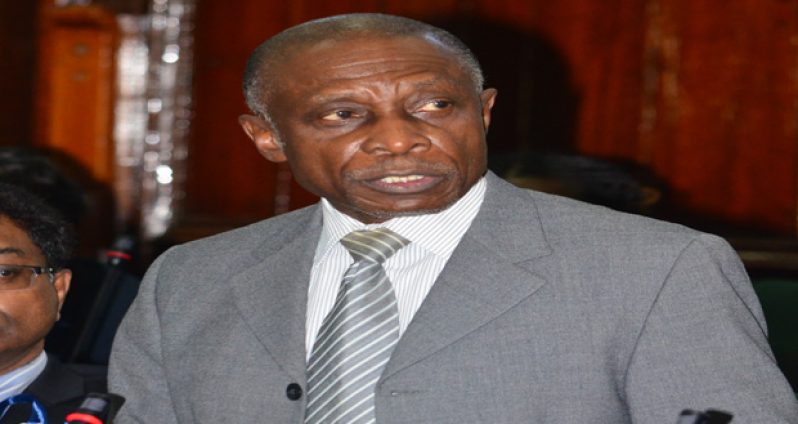AGAINST the backdrop of a claim made via presidential decree by Venezuela’s President Nicolás Maduro against Guyana’s Exclusive Economic Zone (EEZ), Vice-President and Foreign Affairs Minister Carl Greenidge has laid the Maritime Zones (Internal Waters and River Closing Baselines) Regulations 2015 in the National Assembly. The Regulations, enacted by the Guyana Government on July 23 of this year, prescribe the closing of line across the mouths of Guyana’s three largest rivers, namely, the Essequibo, Demerara and Berbice Rivers.
The Minister was keen to note that establishing the baselines allows for the regime to maintain sovereignty over zones within its jurisdiction, in keeping with the United Nations Convention on the Law of the Sea (UNCLOS).
These regulations build on the Maritime Zones Act of Guyana, which was enacted in 2010. “The enactment of the 2010 legislation allowed Guyana to properly safeguard its rights, and to meet its international obligations under current international law on the wider aspect of the Law of the Sea,” the Foreign Minister told the National Assembly yesterday.
“Those zones of jurisdiction are the Territorial Sea, the Contiguous Zone, the Exclusive Economic Zone (EEZ) and the Continental Shelf,” Minister Greenidge said, adding: “Guyana is now in a position to determine and safeguard the zones and jurisdictions under which she is entitled in relation to UNCLOS and general international law.”
The baselines of the three rivers allow Guyana to guard its territory against acts of aggression like those of President Nicolás Maduro. “If a river flows directly into the sea, the baseline shall be a straight line across the mouth of the river, between the points in the lower water-line of its banks,” Minister Greenidge said, citing Article 9 of the UNCLOS.
Article 16 of that Convention, he added, states that baselines shall be shown on charts of a scale adequate to ascertaining their position. These boundaries also grant Guyana full economic rights in these territories.
“As a State party to UNCLOS, Guyana has an obligation, under international law, by virtue of Articles 9 and 16 of that Convention, to properly delimit its internal waters,” Minister Greenidge said.(Derwayne Wills)




.png)









